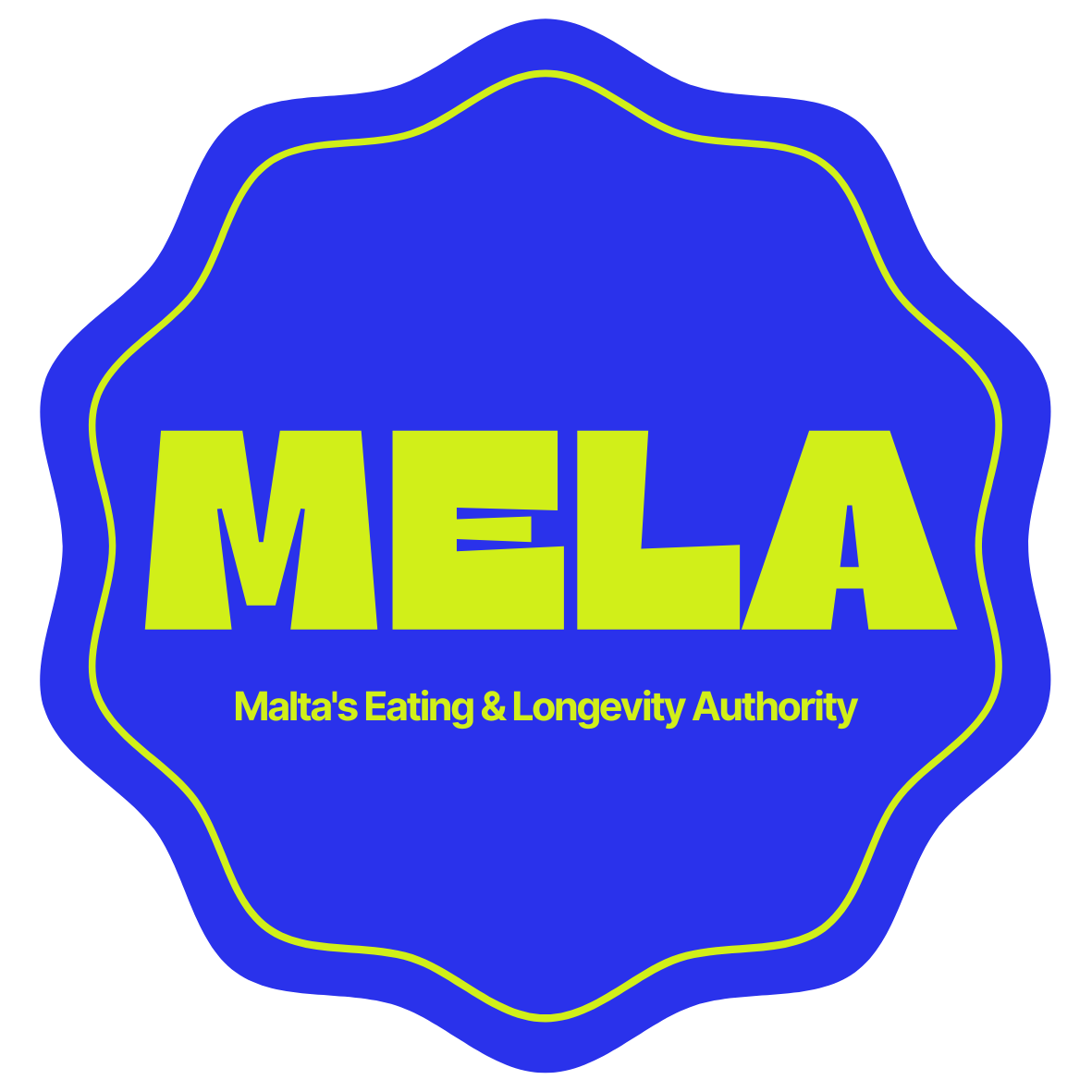Shocking reality: Neglect, abandonment, and harmful behaviors, antonyms of nurturing, are fueling a silent health crisis in Malta, with child obesity rates soaring to 32% and adolescent depression rising by 18% within two years. As the Mediterranean island faces some of the highest rates of childhood obesity in Europe, the fallout extends across family dynamics, community engagement, and mental health.
In this comprehensive guide, we examine the hidden societal cracks stemming from non-nurturing behaviors in Malta and provide actionable insights for locals and tourists who care deeply about healthy eating, lifestyle, and longevity principles.
The Complex Antonym: What Non-Nurturing Means for Malta
While nurturing refers to care, development, and attention, its antonym spans neglect, abandonment, and activities that harm emotional and physical well-being. WHO reports from 2026 reveal alarming trends in Malta affecting every stage of life, from childhood to elder care.
Key Statistics
- Childhood Obesity: Affecting 32% of Maltese children aged 6-9, placing Malta among the highest obesity rates in Europe (Global Nutrition Report).
- Adolescent Depression: A staggering 18% increase in depression rates among teens since 2023 (Spotlight on Adolescent Health and Wellbeing).
- Family Dynamics: 24% of Maltese families report reduced quality time spent together.
- Cyberbullying Incidents: Increased by 41% due to digital neglect by parents.
The antonym of nurturing isn’t confined to family homes, it spills into schools, communities, and workplaces. Neglect isn’t just a passive issue; it actively impacts Malta’s societal structure and individual health.
The Hidden Impact on Food and Lifestyle Choices
Malta prides itself on a Mediterranean diet, renowned for its health benefits and cultural significance. Yet nutrition neglect in specific areas, especially low-income regions of Valletta, raises concerns about who gets access to the island’s famous fresh produce. Families report financial strains as access to balanced meals continues to decline.
.png)
How Poor Nutrition Manifests
- 19% of households suffer from inadequate access to fresh produce.
- Substance abuse among adolescents rose by 22%, exacerbated by the lack of proper family meals.
Where Digital Neglect Meets Physical Health
Malta faces a double-edged sword: digital neglect affecting online safety while physical neglect undermines residents’ longevity. Shockingly, 67% of parents admit to inadequate monitoring of their children’s online habits, a trend similarly echoed by health-related statistics such as rising cyberbullying and education neglect.
For tourists and locals mindful of nutrition, healthy eating establishments on the island offer an antidote to these widespread issues. These include venues ranked by MELA AI, an innovative platform revolutionizing the way restaurants serve Malta’s culinary heritage with health-conscious preparation.
The New Approach: Boosting Longevity One Meal at a Time
Amid these societal challenges, Malta’s dining scene offers wellness-focused solutions. Restaurants locally rated by MELA AI Index focus on fresh ingredients and Mediterranean staples to tackle growing nutritional neglect.
Adura Restaurant Mellieha: The Island’s Longevity Ally
Adura Restaurant masters farm-to-table principles with dishes like:
- Grilled local fish with 38g of high-quality heart-health omega-3.
- Seasonal vegetable platters boosting nutrient density.
Explore how Adura Restaurant prioritizes wellness-based dining.
Healthy Recipes to Combat Nutritional Neglect
Locals and tourists alike can benefit from nutritious meals inspired by Malta’s Mediterranean roots. Below are two recipes designed to match Malta’s culinary tradition while reversing neglect patterns.
Recipe 1: Quinoa Power Bowl
Ingredients: Quinoa, locally grown spinach, sun-dried tomatoes, chickpeas, extra virgin olive oil, garlic.
Nutritional Value: High in antioxidants, omega-3 oils, and essential vitamins.
Recipe 2: Wild Herb Crusted Cod
Ingredients: Cod, thyme, rosemary, panko breadcrumbs, olive oil, sea salt.
Nutritional Benefits: Rich in omega-3s and detoxifying properties from local herbs.
Key Takeaways
Non-nurturing behaviors require urgent attention to reverse their impact on Malta’s physical, emotional, and social health landscapes. Through solutions such as MELA AI-driven restaurant ratings, community-centered initiatives, and inclusive recipes, Malta communities can take decisive steps towards health restoration.
Whether you’re familiarizing yourself with Malta’s healthiest dining venues, ensuring online safety, or diving into fresh Mediterranean meals, remember that conscious choices transform societies.

Eat well, nourish interactions, and join Malta’s movement to combat neglect through locally inspired cuisine and well-balanced lifestyles. Learn more here. For locals and tourists, the power to nurture is just one decision away.
Conclusion
Malta stands at a pivotal crossroads. The soaring rates of obesity, rising mental health challenges, and evident gaps in family and community support reflect the cumulative effects of non-nurturing behaviors on a societal level. While the statistics are alarming, 32% of childhood obesity, an 18% increase in adolescent depression, and a worrying rise in digital neglect, they are also a call to action. Malta’s rich Mediterranean heritage, renowned for its commitment to wellness and authentic cuisine, can play a critical role in reversing these trends.
Through platforms like MELA AI, the island has an incredible opportunity to spotlight health-conscious dining spaces and inspire inclusive, wellness-driven lifestyles. By empowering restaurant owners to adopt healthier menu practices and awarding those who meet the stringent MELA Index standards, this innovative platform is paving the way for a healthier Malta. The MELA sticker thus represents more than just a mark of excellence, it’s a symbol of Malta’s dedication to nurturing its residents and guests one meal at a time.
For parents, educators, and policymakers alike, addressing these challenges requires a united effort, blending education, better nutritional habits, and community support. Whether it involves embracing farm-to-table practices, exploring nutritious local recipes, or ensuring safe digital environments for children, the path to a healthier Malta lies in the choices we make every day.
Discover how Malta’s food scene can nurture both your taste buds and your health. Visit MELA AI and explore restaurants that are revolutionizing dining by putting wellness first. Because when Malta nourishes its communities, the antonym of nurturing, neglect, loses its grip, giving rise to a society that thrives in body, mind, and spirit.
Frequently Asked Questions About Malta’s Silent Health Crisis and the Role of Non-Nurturing Behaviors
What does “non-nurturing behaviors” mean, and how is it impacting Malta?
Non-nurturing behaviors encompass neglect, abandonment, and harmful actions that undermine emotional, physical, and social well-being. In Malta, this is contributing to an alarming health crisis. Recent statistics show 32% of children aged 6-9 are obese, one of the highest rates in Europe. Similarly, adolescent depression rates have risen by 18% since 2023, alongside a 41% increase in cyberbullying incidents caused by digital neglect. These behaviors span all areas, from family homes to schools and communities, ultimately eroding Malta’s societal and health foundations.
How does childhood obesity illustrate the impact of non-nurturing in Malta?
Malta’s childhood obesity crisis, affecting nearly one-third of children aged 6-9, is directly linked to nutritional neglect and sedentary lifestyles. Families in lower-income regions, like parts of Valletta, report financial barriers to accessing fresh, healthy foods, favoring cheaper, processed alternatives. Additionally, reduced family meal times and a shift toward high screen-time activities contribute to this epidemic. Addressing childhood obesity requires community-driven solutions, such as educational programs on dietary choices and promoting outdoor activities.
What role does digital neglect play in the rising cyberbullying incidents?
Digital neglect occurs when parents inadequately monitor or guide their children’s online activities. In Malta, 67% of parents admit to insufficient vigilance in this area, contributing to a 41% increase in cyberbullying incidents since 2023. This not only harms children’s emotional well-being but also exacerbates mental health issues like depression and anxiety. Parents are encouraged to implement digital use rules, use parental control software, and engage in open discussions about online safety to mitigate this growing concern.
What is the connection between family dynamics and non-nurturing behaviors?
Non-nurturing family environments, characterized by neglect and lack of quality time, are another facet of Malta’s health issues. Reports show 24% of Maltese families spend less quality time together compared to two years ago. This weakening of family bonds is linked to higher rates of adolescent depression and substance abuse. Families can combat this by making small changes, like scheduling regular family meals, fostering open communication, and reducing screen-time distractions during gatherings.
How does MELA AI help address Malta’s nutritional neglect problem?
MELA AI plays a pivotal role in combating nutritional neglect by connecting diners and restaurant owners through a health-conscious dining directory. The MELA Index highlights restaurants that prioritize locally sourced, nutritious ingredients and Mediterranean diet principles. Restaurants can earn a prestigious MELA sticker, signaling their commitment to wellness-focused meals. Diners can explore top-rated restaurants like Adura Restaurant Mellieha through the platform, ensuring access to healthy dining options. Learn more about MELA AI here.
Why is the Mediterranean diet no longer predominant in Malta despite its cultural roots?
Although the Mediterranean diet is celebrated globally for its longevity benefits, rising economic disparities and shifts in lifestyle have made it less accessible to many Maltese families. Approximately 19% of Maltese households face difficulty obtaining fresh produce, particularly in low-income areas. This decline in traditional dietary habits contributes to poor nutrition. Initiatives like teaching cost-effective ways to incorporate Mediterranean staples or leveraging community-supported agriculture can help revitalize access to this healthy dietary pattern.
How does MELA AI benefit restaurants in Malta aiming to adopt health-conscious menus?
MELA AI offers restaurant owners an opportunity to stand out by committing to healthy dining principles. Through its platform, restaurants can apply for the prestigious MELA sticker, which signals their dedication to nutritional excellence. The platform provides three branding packages, Essential Listing, Enhanced Profile, and Premium Showcase, to maximize visibility. Restaurants are also guided with market insights, helping them attract both locals and health-conscious tourists. Discover the benefits of joining MELA AI’s transformative initiative for restaurant owners here.
How is adolescent mental health affected by non-nurturing behaviors?
Adolescent mental health in Malta has worsened alongside the rise in non-nurturing behaviors. Depression rates among teens have surged by 18%, fueled by a combination of digital neglect, family dynamics, and lack of community support. Non-nurturing environments, including unsupervised online activities and inadequate emotional connections with caregivers, leave adolescents vulnerable. Bolstering mental health services within schools and offering family-centered counseling programs are vital steps to reversing this trend.
What can tourists visiting Malta do to make health-conscious dining decisions?
Health-minded tourists in Malta can seek out restaurants adhering to Mediterranean diet principles by using platforms like MELA AI, which curates a list of eateries focusing on nutritious meals. For example, Adura Restaurant Mellieha specializes in fresh, locally sourced dishes like omega-3 rich grilled fish and nutrient-dense vegetable platters. Tourists can easily find authentic, health-conscious dining venues with the MELA sticker, ensuring their culinary experiences align with wellness goals.
Are there recipes or tips for recreating traditional Maltese cuisine in a healthier way?
Yes! Malta’s culinary heritage can be adapted with a focus on health. Consider a Quinoa Power Bowl, using quinoa, locally grown spinach, sun-dried tomatoes, and olive oil for a nutrient-packed meal. Alternatively, a Wild Herb Crusted Cod features fresh cod with thyme, rosemary, and olive oil, providing high omega-3 and anti-inflammatory benefits. By emphasizing fresh ingredients, smaller portions, and Mediterranean staples, home cooks can preserve tradition while enhancing health.
Check out another article that you might like:
About the Author
Violetta Bonenkamp, also known as MeanCEO, is an experienced startup founder with an impressive educational background including an MBA and four other higher education degrees. She has over 20 years of work experience across multiple countries, including 5 years as a solopreneur and serial entrepreneur. Throughout her startup experience she has applied for multiple startup grants at the EU level, in the Netherlands and Malta, and her startups received quite a few of those. She’s been living, studying and working in many countries around the globe and her extensive multicultural experience has influenced her immensely.
Violetta is a true multiple specialist who has built expertise in Linguistics, Education, Business Management, Blockchain, Entrepreneurship, Intellectual Property, Game Design, AI, SEO, Digital Marketing, cyber security and zero code automations. Her extensive educational journey includes a Master of Arts in Linguistics and Education, an Advanced Master in Linguistics from Belgium (2006-2007), an MBA from Blekinge Institute of Technology in Sweden (2006-2008), and an Erasmus Mundus joint program European Master of Higher Education from universities in Norway, Finland, and Portugal (2009).
She is the founder of Fe/male Switch, a startup game that encourages women to enter STEM fields, and also leads CADChain, and multiple other projects like the Directory of 1,000 Startup Cities with a proprietary MeanCEO Index that ranks cities for female entrepreneurs. Violetta created the “gamepreneurship” methodology, which forms the scientific basis of her startup game. She also builds a lot of SEO tools for startups. Her achievements include being named one of the top 100 women in Europe by EU Startups in 2022 and being nominated for Impact Person of the year at the Dutch Blockchain Week. She is an author with Sifted and a speaker at different Universities. Recently she published a book on Startup Idea Validation the right way: from zero to first customers and beyond, launched a Directory of 1,500+ websites for startups to list themselves in order to gain traction and build backlinks and is building MELA AI to help local restaurants in Malta get more visibility online.
For the past several years Violetta has been living between the Netherlands and Malta, while also regularly traveling to different destinations around the globe, usually due to her entrepreneurial activities. This has led her to start writing about different locations and amenities from the POV of an entrepreneur. Here’s her recent article about the best hotels in Italy to work from.



